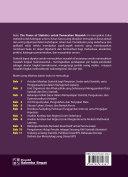
Panduan materi: Paket B : PPKn, Bahasa Indonesia, Bahasa Inggris, Matematika, IPA, IPS
On guidance of national exam resource for elementary, junior, and senior high school in Indonesia.
- ISBN 10 : UOM:39015072802161
- Judul : Panduan materi: Paket B : PPKn, Bahasa Indonesia, Bahasa Inggris, Matematika, IPA, IPS
- Pengarang : ,
- Kategori : General certificate of education examination (Indonesia)
- Bahasa : id
- Tahun : 2006
- Google Book : http://books.google.com/books?id=p1cOAQAAMAAJ&dq=intitle:Bahasa+Inggris&hl=&source=gbs_api
-
Ketersediaan :
... Penilaian Prestasi Akademik T . Ramli Zakaria , Ph . D Koordinator Kegiatan
Candra , S . Kom Penanggung Jawab Materi PPKn : Sony Widyawan , S . H .
Bahasa Indonesia : Sucipto , Drs . Bahasa Inggris Eko Isranto Agustian , S . Sas .






